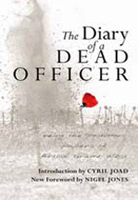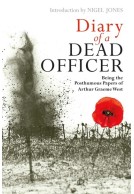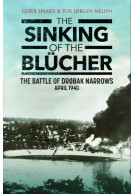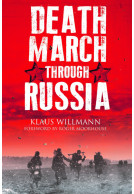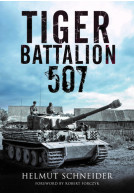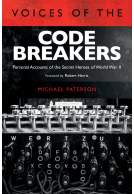Diary of a Dead Officer (Hardback)
Being the Posthumous Papers of Arthur Graeme West
By
Arthur Graeme West

Pages: 176
ISBN: 9781853677298
Published: 15th April 2007
Last Released: 14th September 2008

Pages: 176
ISBN: 9781853677298
Published: 15th April 2007
Last Released: 14th September 2008
You'll be £19.99 closer to your next £10.00 credit when you purchase Diary of a Dead Officer. What's this?
+£4.99 UK Delivery or free UK delivery if order is over £40
(click here for international delivery rates)
Order within the next 11 hours, 39 minutes to get your order processed the next working day!
Need a currency converter? Check XE.com for live rates
(click here for international delivery rates)
Order within the next 11 hours, 39 minutes to get your order processed the next working day!
Need a currency converter? Check XE.com for live rates
| Other formats available - Buy the Hardback and get the eBook for free! | Price |
|---|---|
| Diary of a Dead Officer ePub (6.3 MB) Add to Basket | £6.99 |
• Exceptional diary of a WWI officer, war poet and pacifist • Evokes the cruelty and waste of war with frankness and honesty • Sets his growing disillusionment against vivid scenes of fighting The Diary of a Dead Officer brings together the private papers of Arthur Graeme West. First published posthumously in 1917, they present a scathing picture of army life, and West's poems, which make up the fifth section of the book, serve as a powerful protest against the futility of war. Born in September 1891, West was a quiet, effacing and unathletic youth with a passion for literature, who went on to become a keen Oxford scholar. When war broke out in 1914, it left him for some time untouched. However in January 1915, in a rush of enthusiasm, he enlisted as a private in the Schools Battalion. From that time, until his death in April 1917, his life was a succession of training in England and trenches in France, with short intervals of leave. West joined from a feeling of duty and patriotism, but the war was to have a profound effect on him. He developed an intense abhorrence of army life and began to question the very core of his beliefs - in religion, patriotism and the reason for war. This growing disillusionment found expression in two particularly powerful war poems, God, How I Hate You and Night Patrol, which stand deservedly alongside those of Siegfried Sassoon and Wilfred Owen. In August 1916 he became a second lieutenant in the Oxfordshire and Buckinghamshire Light Infantry. Shortly after, he wrote to his new battalion threatening to desert the army - but he could not bring himself to post the letter. Less than a year later, on 3 April 1917, he was shot dead by a sniper's bullet near Bapaume. Written with complete frankness and sincerity The Diary gives voice to West's struggle to come to terms with the realities of war and is a poignant tribute to a lost generation of soldiers. This edition contains an Introduction by Nigel Jones, author of Rupert Brooke: Life, Death and Myth and The War Walk.
Overall, what a tribute this book is to those who served during the Great War, and their ever-lasting memory. A snapshot of a man's experience. An important piece of Great War writing of which we, and future generations, can be thankful for.
Jon Sandison
More titles by Arthur Graeme West
Customers who bought this title also bought...
Other titles in Greenhill Books...







